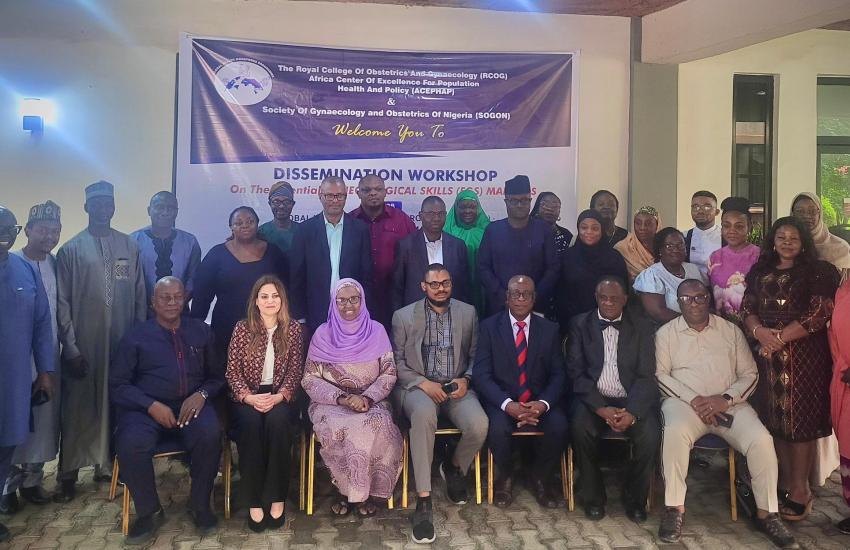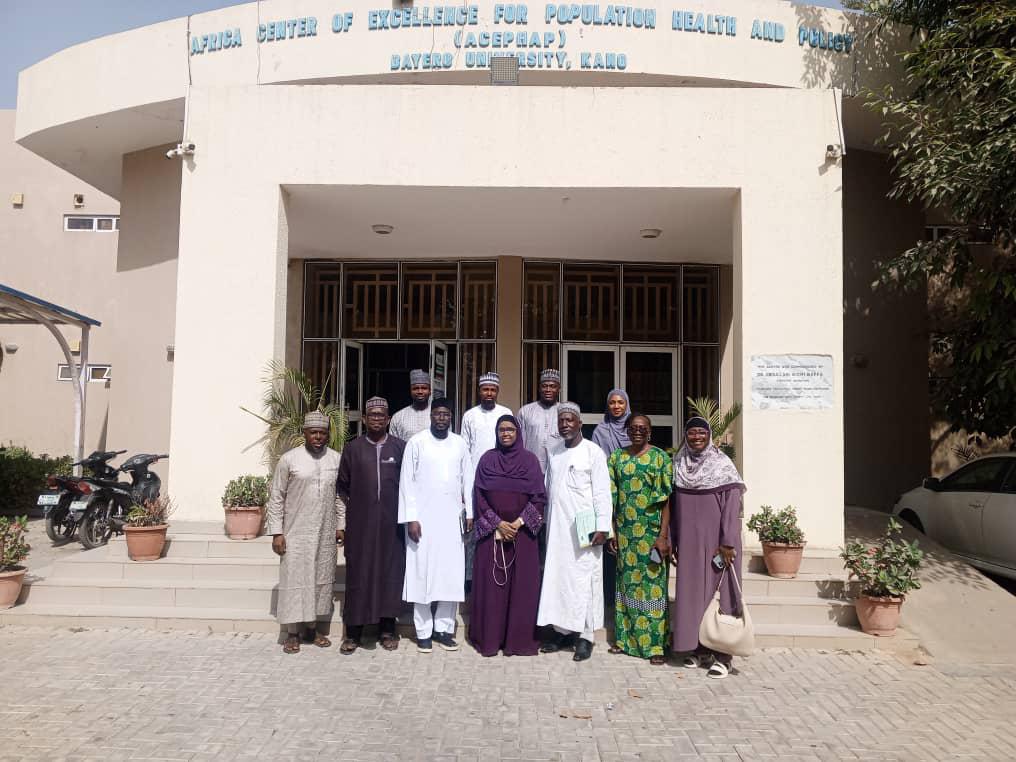Gynaecological Skills Training: ACEPHAP, RCOG, experts push for National Scale-up
Prof. Hadiza Shehu Galadanci, the Director of Africa Center of Excellence for Population Health and Policy (ACEPHAP), has emphasized that Gynaecological Skills Training has the potential of saving more lives. She made this known during the Essential Gynaecological Skills (EGS) Manuals Dissemination Workshop which was held on Monday, 21st July, 2025 at Abuja.
The workshop was conducted in collaboration between ACEPHAP, the Royal College of Obstetricians and Gynaecologists (RCOG), the Society of Gynaecology and Obstetrics of Nigeria (SOGON), the Federal Ministry of Health and other local partners. The team of experts mobilized support for the project by emphasizing its broad advantages and pressing needs.
Prof. Galadanci said, “We trained expert trainers in states like Kano and Abuja, using mannequins for hands-on procedures such as manual vacuum aspiration and emergency care and the trainees showed significant knowledge gains, with pre- and post-test results proving the effectiveness of this model.”
Dr. Sam Agwu, Clinical Lead for the Global Health Workforce Programme and Course Director at RCOG UK, highlighted the initiative's collaborative strength in his welcome speech. He admitted that the assembly of policymakers, medical professionals, and technical specialists today demonstrates our common dedication to enhancing the provision of healthcare for women and girls. Providing frontline workers with high-quality, useful care tools must be our top priority. He also commended while commending the exceptional leadership of Sarah Hall.
The ESG Manuals were among the documents formally launched during the 2025 Safe Motherhood Day commemoration. It was shared alongside other project outcomes with key stakeholders from six states FCT, Lagos, Rivers, Enugu, Bauchi, and Kaduna, with the aim of promoting adoption and facilitating scale-up.
In the words of Sarah Hall, the Director of the Centre for Global Women’s Health at RCOG, during the workshop “Gynaecological conditions in Nigeria have long been overlooked in policies, training, and funding.” She also noted that, Obstetrics and maternal mortality have received a lot of our attention, but problems like infertility and persistent pelvic pain are still not given enough attention. We hope that this training can be expanded countrywide because it equips non-specialist healthcare personnel with the necessary skills to close this gap.
During the project overview session, SOGON President Prof. Okechukwu Ikpeze emphasized the importance of bolstering Nigeria's health workforce. "This program supports our broader goals of helping women realize their right to health, ensuring access to high-quality care, and reducing gender inequality," he said.
While pointing out possible difficulties such as staff turnover from trained facilities, he recommended creating a "critical mass of trainers" as a workable remedy. "We now have a core workforce ready to lead implementation, with over 180 healthcare providers trained across multiple states," he said.
In conclusion, all the stakeholders agreed that it was critical to expand the training across the country, incorporate the newly created handbook into state-level health plans, and gain political support for long-term use.
You can join the conversation on:
- Instagram: @acephap_buk
- LinkedIn: @acephap
- Facebook: @acephap
- X/Twitter: @acephap_buk




